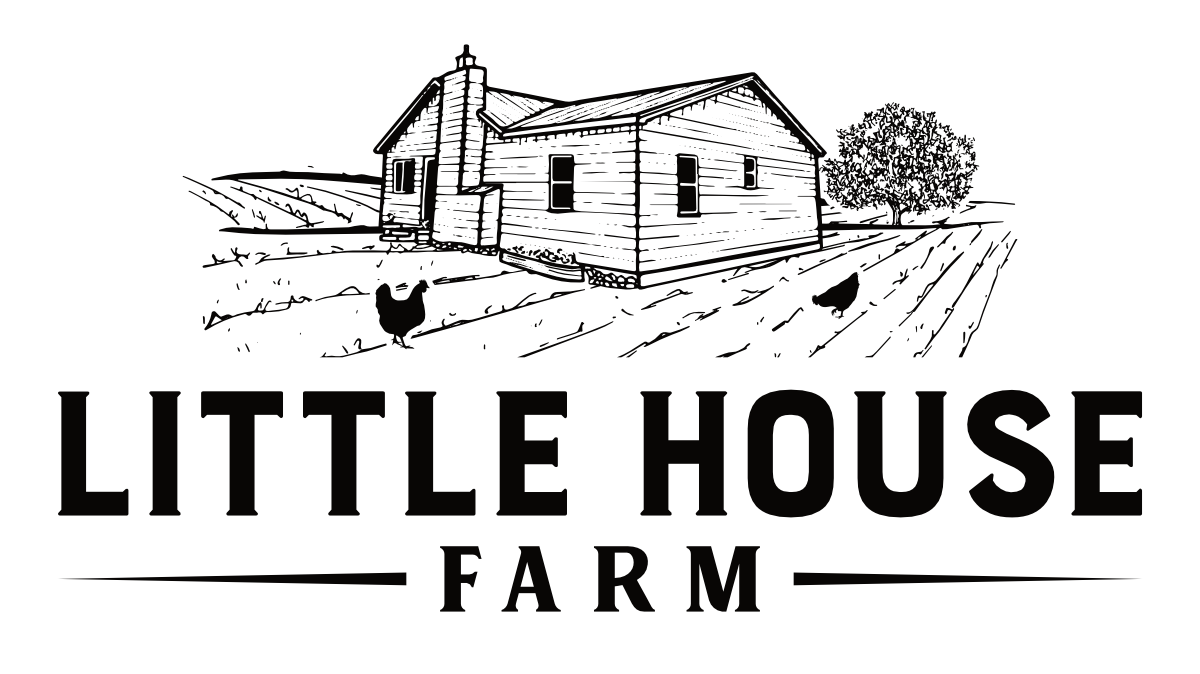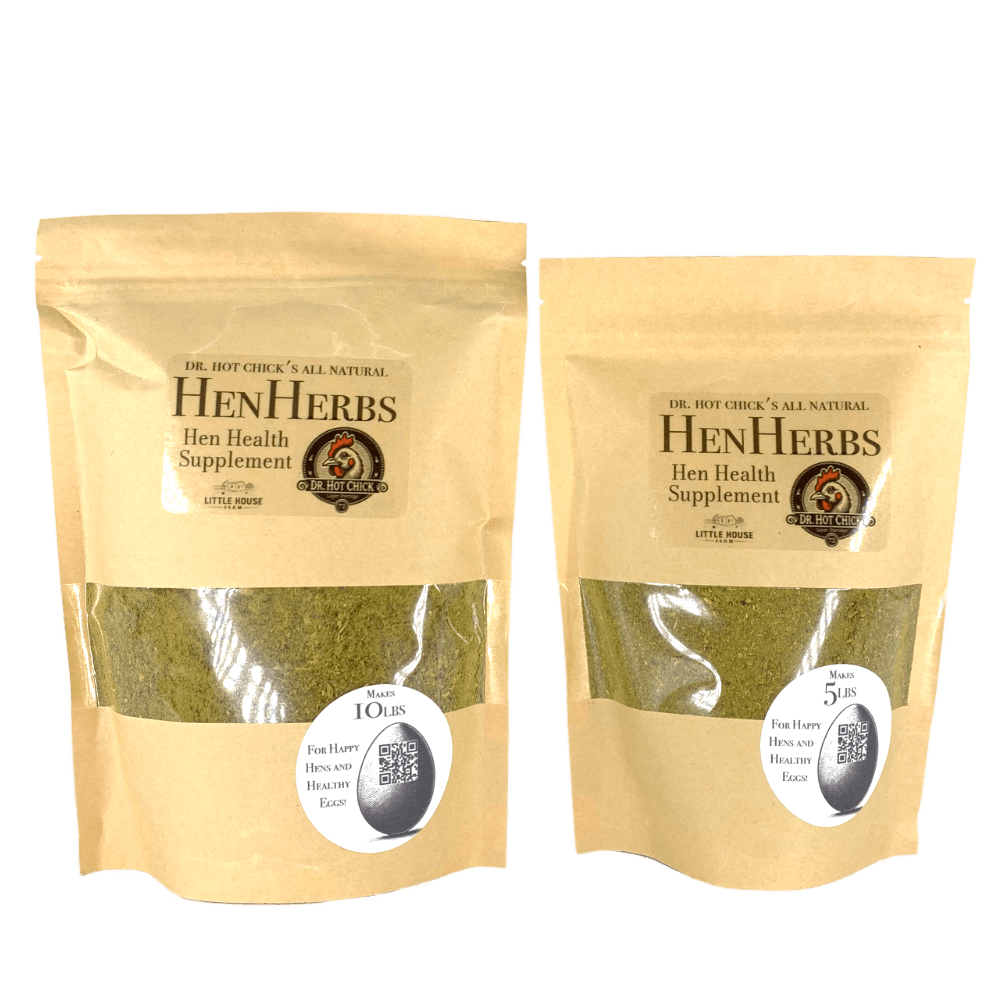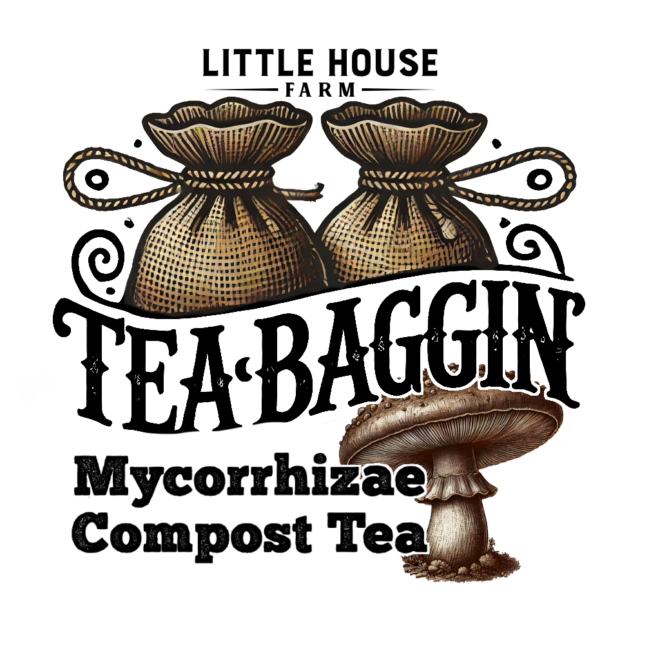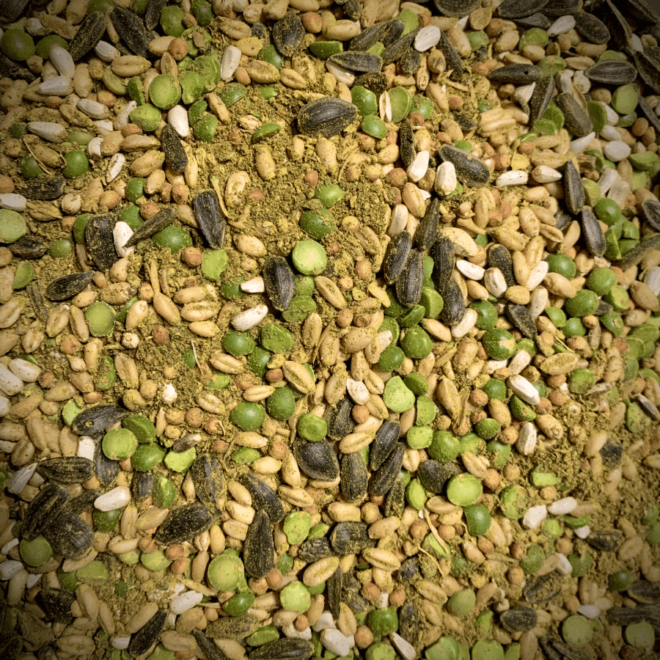Description
Directions:
Mix 6 tablespoons of Dr. Hotchick’s HenHerbs per 1 lb of feed once per week as a supplement to normal food rations.
Ingredients (listed by weight, highest to lowest):
Alfalfa Meal, Ground Pumpkin Seeds, Ground Oats, Garlic Powder, Turmeric, Oregano, Cayenne Pepper.
“As an animal nutritionist specializing in egg-laying hens, I can tell you that incorporating this herbal mixture into your hens’ diet consistently over several months can lead to significant improvements in their overall health, egg production, and egg quality.”
Here is what you can expect to see in your hens throughout the different seasons when using HenHerbs regularly.
Overall Expected Benefits Over Several Months
- Enhanced Immune Function: The herbs and supplements in the mixture boost the hens’ immune systems, making them more resilient to diseases.
- Improved Digestive Health: Ingredients like alfalfa meal and ground oats promote healthy digestion and nutrient absorption.
- Increased Egg Production: A consistent supply of essential nutrients supports sustained egg-laying performance.
- Superior Egg Quality: Expect stronger eggshells and richer yolk coloration due to enhanced nutrient intake.
- Parasite Control: Natural antiparasitic ingredients help reduce internal and external parasite loads.
- Overall Vitality: Hens will exhibit improved feather quality, increased activity levels, and better stress tolerance.
Ingredient-Specific Benefits
Let’s delve into how each ingredient contributes to these positive outcomes:
1. Alfalfa Meal
-
- Nutritional Profile: High in protein (17-20%), vitamins A, D, E, K, and minerals like calcium and magnesium.
- Benefits:
- Egg Production: Supports consistent laying due to its high protein content.
- Eggshell Quality: Calcium and other minerals strengthen eggshells.
- Yolk Coloration: Rich in xanthophylls and beta-carotene, enhancing yolk pigmentation.
- Feather Health: Aids in feather regrowth during molting.
2. Ground Oats
-
- Nutritional Profile: Provides carbohydrates, fiber, and some protein.
- Benefits:
- Energy Source: Supplies readily available energy for daily activities and egg production.
- Digestive Health: Fiber promotes gut motility and supports beneficial gut bacteria.
3. Turmeric Powder
-
- Properties: Anti-inflammatory, antioxidant, antimicrobial.
- Benefits:
- Immune Support: Enhances the immune response, reducing susceptibility to infections.
- Joint Health: Anti-inflammatory effects may improve mobility, especially in older hens.
- Detoxification: Supports liver function and overall detoxification processes.
4. Cayenne Pepper
-
- Properties: Stimulates circulation, antimicrobial, antiparasitic.
- Benefits:
- Appetite Stimulation: Encourages feed intake during times of stress or reduced appetite.
- Parasite Deterrence: May help reduce internal parasites due to capsaicin content.
- Thermoregulation: Improves blood flow, helping hens cope with cold temperatures.
5. Dried Oregano
-
- Properties: Strong antimicrobial and antioxidant.
- Benefits:
- Respiratory Health: Protects against respiratory infections by combating pathogens.
- Gut Health: Promotes a healthy gut flora balance, improving nutrient absorption.
6. Garlic Powder
-
- Properties: Antimicrobial, antifungal, antiparasitic.
- Benefits:
- Immune Boosting: Strengthens the immune system against various pathogens.
- Parasite Control: Helps in reducing worm burdens and external parasites like mites.
- Cardiovascular Health: Supports heart health and circulation.
7. Ground Pumpkin Seeds
-
- Properties: Natural dewormer due to cucurbitacin content.
- Benefits:
- Parasite Expulsion: Aids in the natural elimination of intestinal parasites.
- Nutrient Provision: Supplies essential fatty acids, zinc, and other nutrients for overall health.
Seasonal Effects and Expectations
Spring
-
- Egg Production Surge: As daylight increases, hens naturally ramp up egg production. The mixture supports this surge by providing essential nutrients.
- Reproductive Health: Enhanced vitamin and mineral intake optimizes reproductive functions.
- Feather Condition: Improved plumage due to better nutrition, preparing hens for warmer weather.
What to Expect:
-
- Increased egg-laying rates.
- Vibrant feather coloration and sheen.
- Hens exhibiting energetic behavior.
Summer
-
- Heat Stress Mitigation: Ingredients like cayenne pepper can help maintain appetite during heat stress.
- Hydration Support: Improved digestion aids in better water utilization.
- Parasite Pressure: Warmer months can increase parasite activity; garlic and pumpkin seeds help manage this.
What to Expect:
-
- Consistent feed intake despite high temperatures.
- Stable egg production levels.
- Reduced signs of external parasites.
Autumn
-
- Molting Support: Alfalfa meal’s high protein aids in feather regrowth during molting.
- Immune Preparation: Antioxidant-rich ingredients prepare hens for the coming cold.
- Parasite Reduction: Continued antiparasitic support reduces parasite loads before winter.
What to Expect:
-
- Quicker recovery from molting.
- Improved feather quality and density.
- Steady health as temperatures drop.
Winter
-
- Cold Stress Resistance: Energy from ground oats and improved circulation from cayenne pepper help hens cope with cold.
- Egg Production Maintenance: Nutrient-rich diet helps sustain egg-laying, even as daylight decreases.
- Immune Defense: Enhanced immunity reduces the risk of winter illnesses.
What to Expect:
-
- Better tolerance to cold temperatures.
- Continued egg production, albeit possibly reduced due to natural cycles.
- Hens remaining active and healthy throughout winter.
Long-Term Observations
-
- Egg Production:
- Consistency: More uniform laying patterns, with fewer fluctuations.
- Quantity: Potential increase in the number of eggs laid over time.
- Longevity: Hens may maintain peak production for a longer portion of their laying cycle.
- Egg Quality:
- Shell Strength: Noticeably thicker and stronger shells, reducing breakage.
- Yolk Color: Deeper, more vibrant yolk coloration, indicating high nutrient content.
- Albumen Quality: Firmer egg whites, reflecting freshness and protein quality.
- Hen Health:
- Plumage: Glossy feathers with minimal feather loss outside of molting periods.
- Behavior: Increased activity levels and natural behaviors like foraging.
- Weight Maintenance: Healthy body condition without excessive weight gain or loss.
- Parasite Management:
- Internal Parasites: Reduced worm burdens, leading to better nutrient absorption and overall health.
- External Parasites: Lower incidence of mites and lice, resulting in less feather damage and skin irritation.
- Disease Resistance:
- Lower Mortality Rates: Enhanced immunity may lead to fewer deaths due to disease.
- Reduced Illnesses: Fewer occurrences of common poultry diseases like coccidiosis and respiratory infections.
- Egg Production:
Monitoring and Management Tips
- Regular Observation: Keep an eye on your hens’ behavior, appearance, and egg production to gauge the mixture’s effectiveness.
- Adjustments: Be prepared to adjust feeding practices based on seasonal changes and the hens’ condition.
- Veterinary Check-ups: Periodic health assessments by a veterinarian can help detect any issues early.
- Biosecurity: Maintain good coop hygiene to complement the benefits of the herbal mixture.
Potential Challenges
- Dietary Changes: Some hens may take time to adjust to the new mixture; gradual introduction can help.
- Individual Variations: Not all hens will respond identically; monitor for any that may require special attention.
- Environmental Factors: Extreme weather conditions may still impact hens; ensure they have appropriate shelter and care.
Conclusion
By consistently incorporating this herbal mixture into your hens’ diet over several months, you can expect to see:
- Improved overall health and vitality.
- Enhanced and sustained egg production and quality.
- Better resilience to seasonal stresses and environmental challenges.
- Reduced parasite loads and disease incidence.
This holistic approach leverages the synergistic effects of natural ingredients to support your hens throughout the year, promoting a thriving flock and rewarding you with high-quality eggs.
Remember: While this mixture is designed to support hen health, it should be part of a comprehensive care plan that includes consulting with a veterinarian, proper housing, sanitation, and overall good management practices. Regular monitoring and adjustments based on your hens’ specific needs will ensure the best outcomes.



